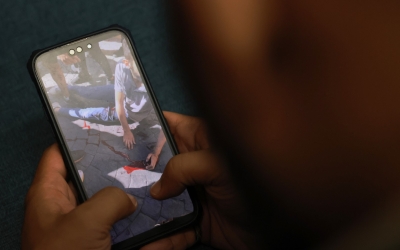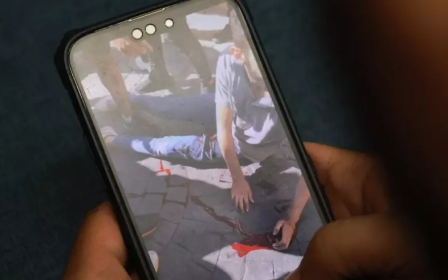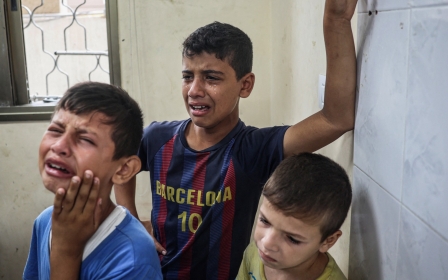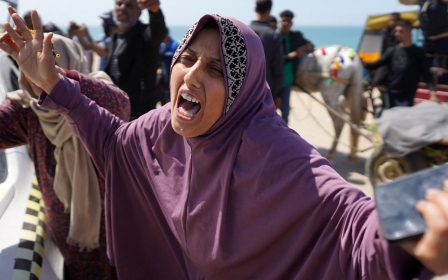The Israeli war on Lebanon's hidden goal: Gaza's full erasure
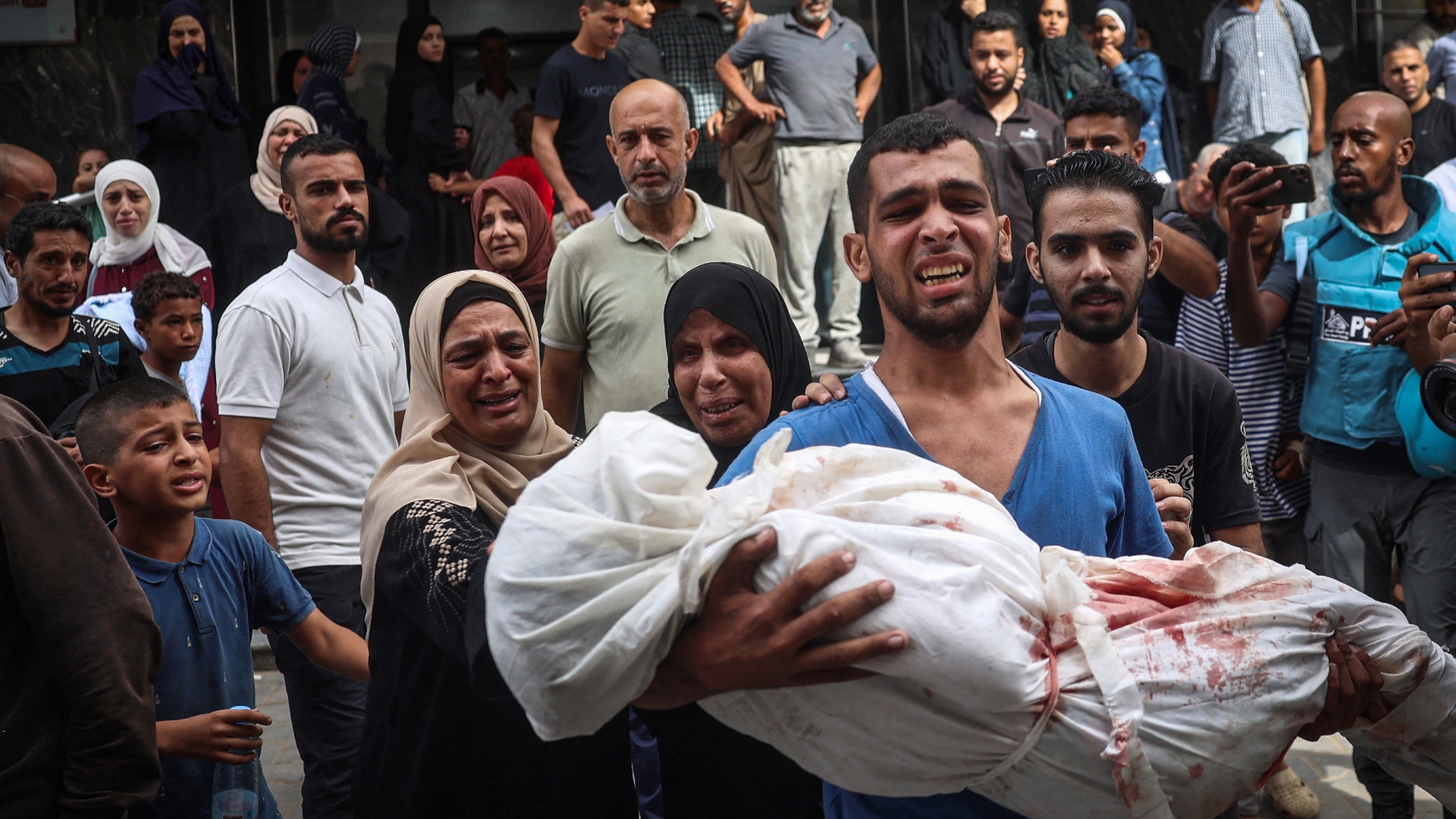
This week, Lebanon was rocked by deadly explosions targeting the communication devices of Hezbollah members. The blasts killed at least 32 people, including two children and several healthcare workers, while wounding thousands more.
Israel has not denied responsibility for this mass cyberattack, while several officials close to Prime Minister Benjamin Netanyahu have hinted that Israel was behind it.
It marks a new escalation in what was previously a slow-burning war of attrition between Hezbollah and Israel. While the magnitude of the attack is massive and unprecedented, it should not have come as a surprise.
For weeks, Israeli officials have signalled the need for military intervention to stop Hezbollah rockets and to secure the return of more than 60,000 displaced Israelis to their homes in the north.
New MEE newsletter: Jerusalem Dispatch
Sign up to get the latest insights and analysis on Israel-Palestine, alongside Turkey Unpacked and other MEE newsletters
One day before the attacks, Israel's Defence Minister Yoav Gallant told American officials that "time is running out" to stop the escalation with Hezbollah from turning into a full-blown war.
Indeed, this attack could mark the beginning of such a war. Israel's continued provocations will force Hezbollah to respond, making a full-scale war the only possible outcome.
On Thursday, Israel continued to escalate its aggression in what was the heaviest bombardment of southern Lebanon since the start of the war. A massive air strike on a densely populated residential neighbourhood in Beirut on Friday killed at least 14 people, including children, and senior Hezbollah commander Ibrahim Aqil.
The threat of war, however, will have implications far beyond Lebanon, as it will turn the world's attention away from Gaza and allow Israel to complete its mass killing and ethnic cleansing of Palestinians.
Darker goals
The timing of the recent provocations in Lebanon was carefully calculated, as the current US administration is limited in its ability to influence Israel to stop a full-scale war - a dream for many Israeli officials.
In June, Israel's National Security Minister Itamar Ben Gvir and Finance Minister Bezalel Smotrich, who repeatedly warned Netanyahu against a ceasefire deal, called for the invasion of Lebanon. A month later, Smotrich further called for the occupation of south Lebanon. With the US distracted by a heated election year, Netanyahu is fulfilling Smotrich and Ben Gvir's dream.
Follow Middle East Eye's live coverage of the Israel-Palestine war
In any potential war against Lebanon, Israel would employ many of the tactics it has used in Gaza - the targeting of civilian infrastructure, bombing residential areas, and starving the population.
This war would undoubtedly draw widespread international attention - as it should - due to the high number of civilian casualties that would occur. However, while the world focuses on Lebanon, Israel may pursue another darker goal: completing its ethnic cleansing of Gaza.
For a few months, global attention towards the suffering in Gaza has been diminishing.
Should a war break out in Lebanon, whatever is left of attention towards Gaza would be directed to Lebanon. This distraction will provide Israel with a perfect cover to continue its campaign of killing, injuring, starving, and displacing Palestinians in Gaza.
It has been evident since the early days of the war, and through leaked documents, that Israel aims to get rid of Palestinians in Gaza forever - either by forcing them into Egypt or killing them.
The ethnic cleansing of Gaza has so far officially killed over 41,000 Palestinians, according to Palestinian health officials. But a study published by The Lancet in July shows Gaza's true death toll could reach at least 186,000. After nearly one year of Israel's war on Gaza, Palestinians are fighting to survive the looming outcome of Israel's goal - complete erasure.
Recently, the Israeli government appointed a permanent military governor for Gaza, signalling its long-term occupation and even annexation. Such plans are hard to conceal under current international scrutiny. A war on Lebanon could shift the world's focus away from Gaza, paving the way for Israel to advance its genocidal ambitions in Gaza.
The world has already stopped talking about the constant bombing of schools, the killing of aid workers, or preventing the delivery of aid. June saw the lowest number of aid trucks entering Gaza since October, a record surpassed by August.
Before the war, Gaza needed around 500 aid trucks a day. In August, the daily average of humanitarian truckloads was 69 trucks. This systematic decrease in aid is not an accident. It is a plan to push Palestinians out to Egypt or, if that fails, to starve them to death.
With a new front in Lebanon, this plan will be fully executed in Gaza. Israel's goal of ethnically cleansing Gaza remains, and while light must undoubtedly be shed on Lebanon if a war breaks out, we must also prevent Israel from accelerating its genocidal agenda in Gaza.
The Arab world must unite in opposition to Israel's genocide in Gaza and aggression against Lebanon. The international community should step up to the moment and sanction the Israeli government for its actions.
We must not forget Gaza because history surely will not.
The views expressed in this article belong to the author and do not necessarily reflect the editorial policy of Middle East Eye.
Middle East Eye delivers independent and unrivalled coverage and analysis of the Middle East, North Africa and beyond. To learn more about republishing this content and the associated fees, please fill out this form. More about MEE can be found here.



